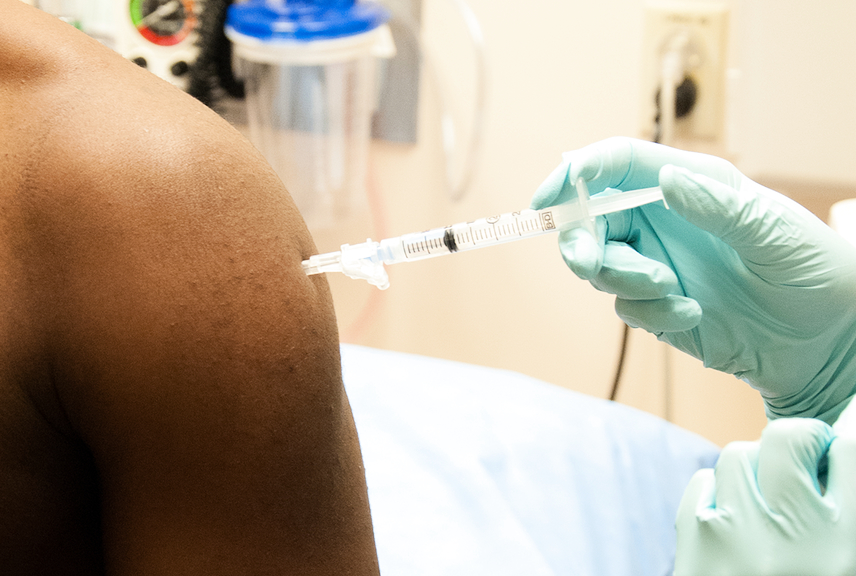A third of EU's diphtheria patients are Latvians
The last diphtheria outbreak in Latvia happened in the early 90s when more than 300 people caught the disease. The epidemic was caused by anti-vaccination sentiments in a large part of society.
"There were calls that [people] shouldn't be vaccinated, and many responded to these calls and didn't vaccinate their children in the 80s. As a result, the so-called collective immunity crumbled [..]," said Juris Perevoščikovs, a representative from the Center for Disease Control and Prevention (SPKC).
The epidemic was prevented after a wide vaccination campaign, but since 2011 cases have been on the rise again.
From 2009 to 2011, there were 14 diphtheria patients in Latvia – only grownups – while in the last three years the number of cases has doubled, and there are 16 children among the patients.
The SPKC admits that it's a huge number when compared to other EU countries where diphtheria has been almost completely eradicated.
"In the EU there have been 93 diphtheria cases in three years. Of these, 27 were registered in Latvia.
Practically speaking, every third case in the EU is tied to Latvia.
The cases outside of Latvia, like in Germany or the United Kingdom, are mostly due to people visiting foreign countries. India, for example, where diphtheria is still not something unusual. The people in Latvia, though, didn't go anywhere. They caught the disease right here," said Perevoščikovs.
As before, one of the main reasons why there are so many cases of the disease now is that people choose not to get diphtheria shots. About 95% of Latvian infants have been vaccinated in their first year of life, while only a little more than a half are vaccinated among adults.
However, vaccines are the only safeguard against the disease, the mortality rate of which reaches 10%. Sadly, 20 people have died from diphtheria in the last 15 years, and four of them were children. None of them had been vaccinated, said Perevoščikovs.
Dace Zavadska, a pediatrist from the Children's Clinical Hospital where the last two registered cases of diphtheria were treated, listed a few reasons why parents choose forgoing vaccination for their children.
"It's fear of [adverse] reactions of which most are transient and don't harm the child in any way. Then there are many stories and myths on the internet, between friends and among activist groups, about complications that may arise, but in reality it's not based on facts," said Zavadska.
Family practitioners should encourage vaccination
The SPKC told Latvian Radio that family practitioners should convince people to take vaccines, which are voluntary. Old people are particularly hard to convince about vaccination.
"Those who work, and young people - they all agree to have shots, while more than half of those over 70 refuse. They say that they have already lived their life and that they won't catch the disease no more. The argument that they can become disease carriers and endanger others if they don't get vaccinated, it doesn't convince them [..]," said family practitioner Ainārs Mežals.
The diphtheria vaccine is fully funded by the state. Adults should take reinforcing (booster) doses every ten years. If the number of cases rises again, it's possible that the interval will be reduced to five years.



























